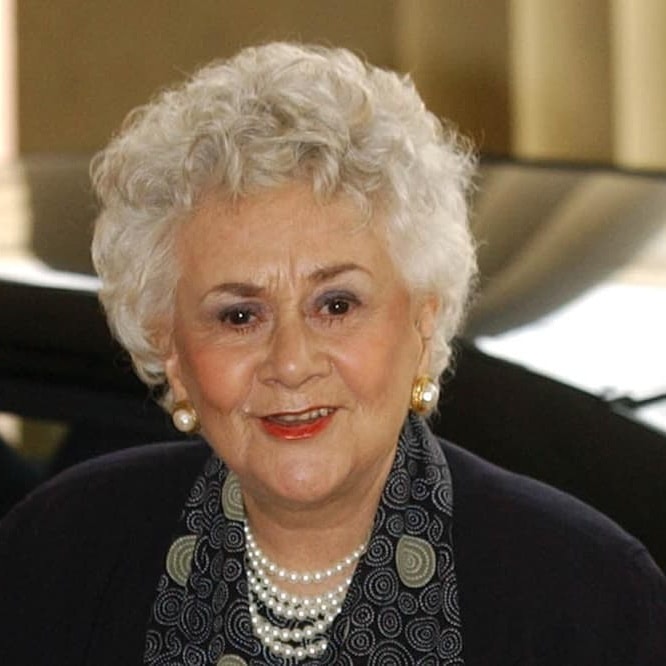Dame Joan Plowright: A Legacy of Talent, Resilience, and Grace
Dame Joan Plowright, a revered figure in British acting, leaves behind a rich legacy that spanned six decades across theater, film, and television. Her contributions to the arts and her enduring spirit have solidified her status as one of the most impactful performers of her time. From her early years in Lincolnshire to her triumphant Broadway performances and her pivotal role at the National Theatre, Plowright's life story is one of relentless dedication and artistry.
An Inspirational Beginning
Joan Ann Plowright was born on October 28, 1929, in Brigg, Lincolnshire. Encouraged by a family that valued education and the arts, she pursued her passion for acting at the Bristol Old Vic Theatre School. Her early performances in regional theater showcased her versatility and drew attention to her distinctive talent. By 1954, Plowright had made her London debut, quickly becoming a mainstay in British theater.
Her big break came in 1957 with The Entertainer, where she starred opposite Sir Laurence Olivier. This performance marked the beginning of an iconic partnership that extended beyond the stage. In 1960, Plowright reprised her role in the film adaptation, earning widespread acclaim and her first BAFTA nomination.
A Dynamic Partnership with Sir Laurence Olivier
Plowright’s marriage to Olivier in 1961 was a union of two towering figures in theater. They became the ultimate power couple, with Plowright contributing significantly to Olivier’s endeavors at the National Theatre, where he served as director. Despite the challenges of being in the shadow of one of the 20th century's greatest actors, Plowright’s performances stood on their own, commanding admiration from audiences and critics alike.
The pair worked seamlessly together, though Plowright often carved her own path. Her Broadway appearances during their early years of marriage, including a Tony-winning performance in A Taste of Honey, highlighted her strength and individuality as an artist.
Transition to Screen Stardom
Although Plowright built her reputation on the stage, her foray into film and television brought her widespread recognition. Her nuanced performances were often characterized by warmth, humor, and intelligence. She garnered an Oscar nomination for her role as Mrs. Fisher in Enchanted April (1991), a performance that epitomized her ability to imbue characters with depth and authenticity.
Other memorable roles included Equus (1978), where she acted alongside Richard Burton, and various television productions that allowed her to explore a range of complex characters. Her onscreen presence extended well into the 2000s, showcasing her enduring appeal and adaptability.
Achievements and Honors
Dame Joan Plowright was widely respected not only for her talent but also for her professionalism and grace. In 2004, she was appointed Dame Commander of the British Empire (DBE) in recognition of her outstanding contributions to the arts. This accolade affirmed her place among Britain’s greatest artistic figures, cementing her legacy.
Plowright’s later years were marked by challenges, including vision loss that led to her retirement in 2014. Yet even in the face of adversity, she remained a revered figure in the industry, with peers and younger generations continuing to draw inspiration from her life and work.The End of an Era
On January 16, 2025, Dame Joan Plowright passed away peacefully at the age of 95, surrounded by her loved ones at Denville Hall, a retirement home for actors. Her family’s statement reflected the profound loss felt by all who knew her: “Dame Joan Plowright, the Lady Olivier, was a beacon of talent and kindness, leaving behind a legacy that will endure for generations.”
Her passing marks the end of an era in British theater and cinema. Yet, her remarkable body of work and her impact on the performing arts ensure that she will be remembered not just as Laurence Olivier’s widow, but as one of the finest actresses of her generation.
The Enduring Legacy of Dame Joan Plowright
Plowright’s contributions to the arts extended beyond her performances. She championed the importance of theater as a vital cultural institution and inspired countless actors with her commitment to excellence. Whether on stage or screen, she brought dignity, depth, and authenticity to every role she undertook.
Dame Joan Plowright’s story is a testament to the power of perseverance, talent, and the enduring impact of the performing arts. Though her physical presence is gone, her spirit and influence will resonate in theaters and on screens for years to come.














